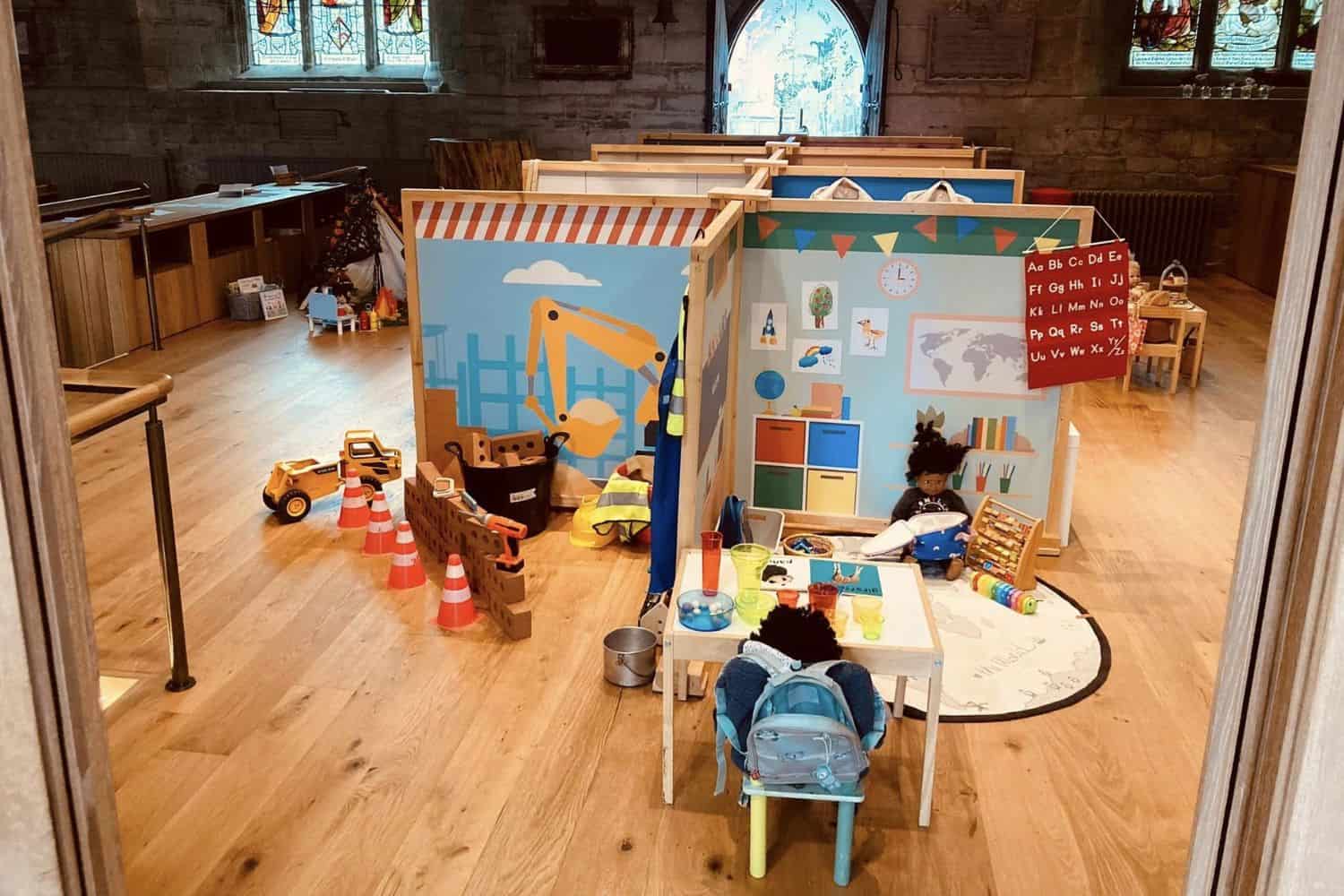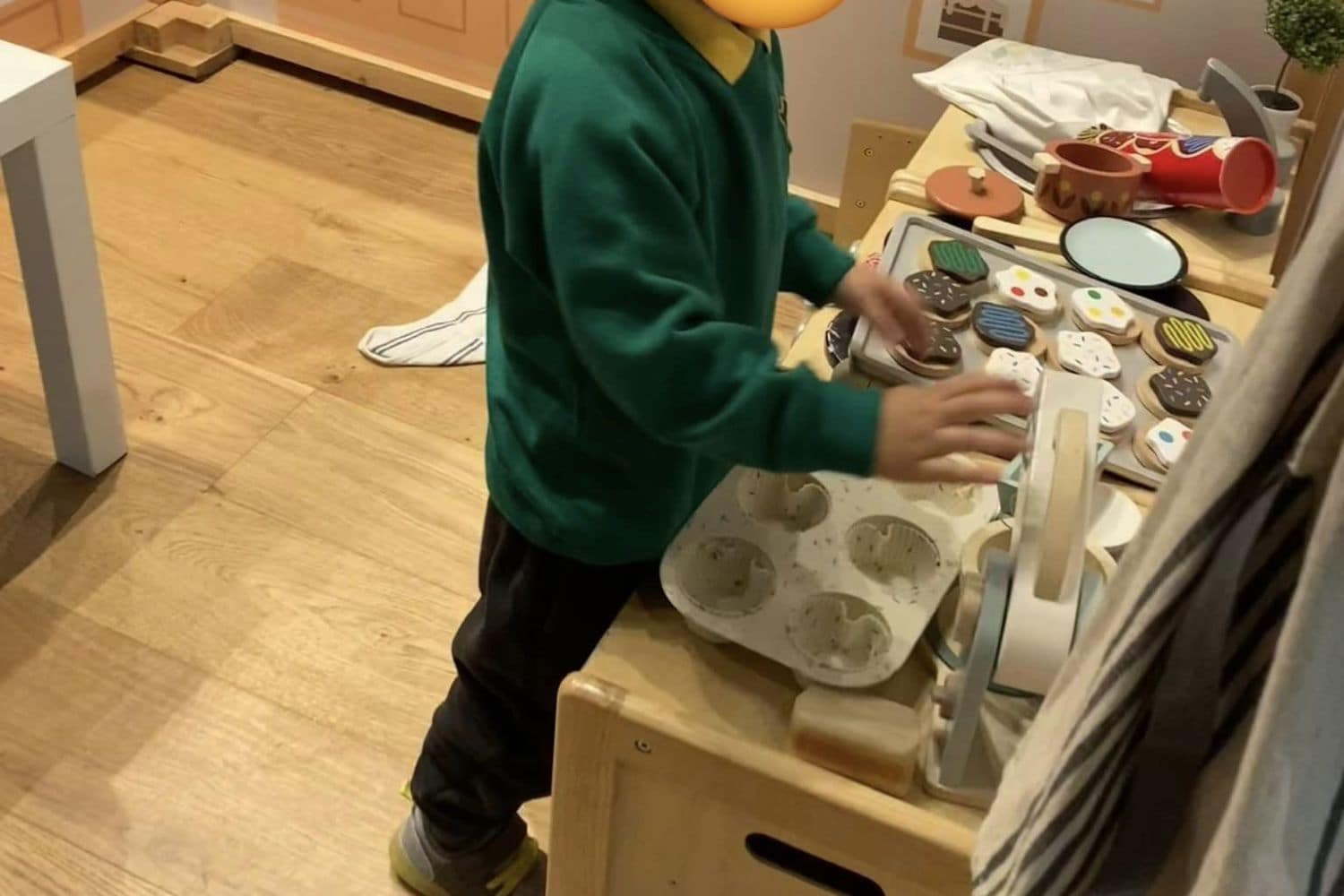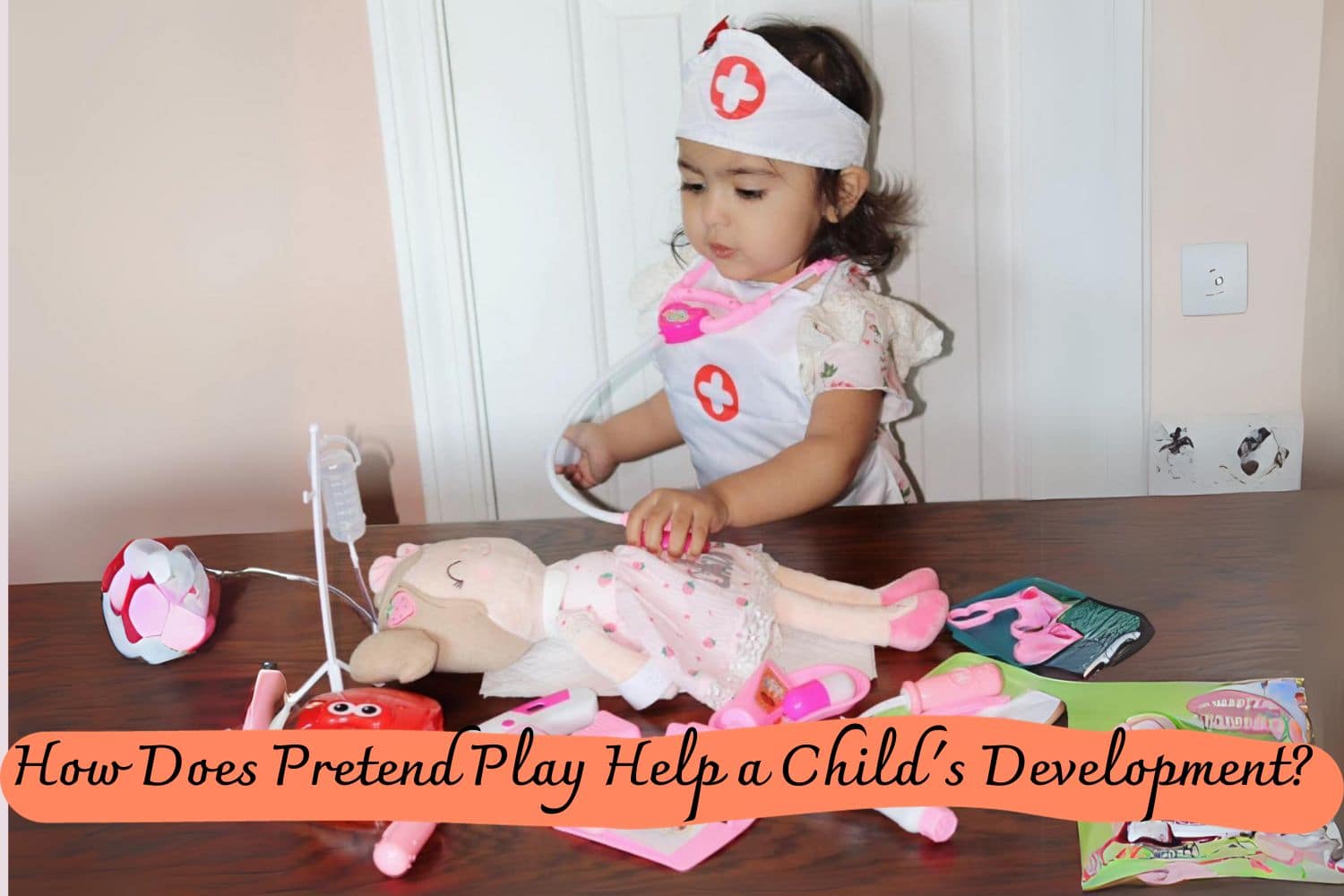Discover – How does pretend play help a child’s development? And explore strategies to help your kids get the most from this important activity.
How Does Pretend Play Help a Child’s Development?
Have you ever seen a child put on their superhero cape and pretend they are saving the world? Or perhaps they watched as they cooked up creations in an imaginary kitchen using random odds and ends from around the house?
This form of play may seem like just another way for children to have fun, but in fact, it is vitally important to their development. Pretend play has been linked to helping young minds grow socially, emotionally, and intellectually – so what exactly does this unique activity teach our little ones about life?
From negotiation to empathy, from problem-solving to cooperation, the benefits are endless. Encouraging imagination and creativity, this form of play teaches children to think critically and adapt to various situations.
It also helps them understand the power of teamwork, communication, and self-expression. Building a foundation for success, pretend play is a captivating way for children to master essential life skills.
In this blog post, we’ll look at: “How does pretend play help a child’s development?” As well as some tips for encouraging imaginative activities in your own home.
What Is Pretend Play?

Pretend play is a type of play where children use their imaginations to create scenarios and act out roles or scenes.
It involves make-believe, pretending to be someone else, or playing with imaginary objects. This form of play often mimics real-life situations or events that children have observed in their daily lives.
How Does Pretend Play Help a Child’s Development?

Discovering Themselves and the World Around Them
Through dramatic play, children embark on a journey of self-discovery, exploring their preferences, interests, and skills. By immersing themselves in various roles, they strive to make sense of the world they observe.
Watch closely as children engage with dolls, and witness the power of imagination. These dolls often become reflections of the child, providing a safe outlet for new ideas and emotions.
Simplify and Overcome Life’s Challenges
Have you ever observed children playfully pretending to be at the doctor’s office? One child eagerly grasps a toy stethoscope while the others eagerly queue up for a check-up.
Often, someone even volunteers to receive “shots.” These imaginative scenarios provide children with a safe space to navigate common, yet perplexing or intimidating experiences.
Through role-play, children can gain the confidence and understanding to face life events head-on. Whether it’s grappling with a family illness, the absence of a parent, a divorce, or even a house fire, children often turn to pretend play to process and overcome these personal challenges.
Unleash your child’s potential today by harnessing the power of imagination and pretend play. Help them develop the skills they need to navigate life’s hurdles with ease and resilience.
Unlocking Complex Social and Thinking Skills
Pretend play goes way beyond simple fun – it’s a powerhouse for developing advanced thinking strategies, communication, and social skills. Children engage in pretend play to learn essential abilities like negotiation, empathy, critical thinking, and adaptability.
They become experts at transferring knowledge, compromising, balancing ideas, and even planning and executing actions. As they dive into the realm of imagination, they explore symbolism, express their thoughts, and practice listening.
They assign tasks, roleplay, and master the art of synthesizing diverse information and ideas. Remarkably, these are the same skills required to excel in managing complex adult projects.
Master the Art of Social And Emotional Intelligence
Our ability to connect with others is crucial for a fulfilling and prosperous life. But understanding social cues, managing our emotions, and navigating relationships can be challenging.
Luckily, there’s a powerful tool that can help: creative and imaginative play. Discover how this magical method can teach and elevate these essential skills in children.
Unlock the Power of Play for Children’s Learning And Development
By engaging in pretend play, children can seamlessly integrate their knowledge and skills. Imagine them playing ‘grocery’ store, where they not only sort items but also utilize math, writing, and critical thinking skills. From organizing the store to collaborating with others, the possibilities are endless. Let their imaginations roam and watch as learning comes to life.
Tips for Encouraging Pretend Play at Home
- Role-Play Together – Engage in imaginative activities with your child, whether it’s playing dress-up or taking turns pretending to be characters.
- Provide Props and Costumes – Keep a box of dress-up clothes and props handy for your child to use during playtime.
- Set the Scene – Create different play environments for your child, such as a pretend grocery store, restaurant, or doctor’s office.
- Encourage Storytelling – Ask your child to tell you a story, and then act it out together using their toys or props.
- Don’t Interrupt – Let your child take the lead during pretend play and resist the urge to direct or control the activity.
- Praise Creativity – Celebrate your child’s imagination and creativity by providing positive feedback and encouragement.
- Join In – Get involved in the play if invited but also allow for independent playtime where your child can explore their imagination freely.
Conclusion
In conclusion, pretend play is an essential activity for a child’s development and should be encouraged.
As children explore new roles and activities through pretend play, they develop many important skills, such as engaging in perspective-taking, understanding reality versus fantasy, making decisions, exercising creative thinking, and more.
Encourage your child to explore the world through creative pretend play today. Give them a plethora of resources like dress-up clothes or imaginative building blocks so that their creative minds can find endless possibilities for entertainment and learning.
Most importantly, have fun! Support your child’s exploration in their unique way and take enjoyment in the satisfaction on their faces when they come up with something wildly inventive!
Thanks for reading our article How Does Pretend Play Help a Child’s Development? If you want to know more information, visit our website here.
Read more:

